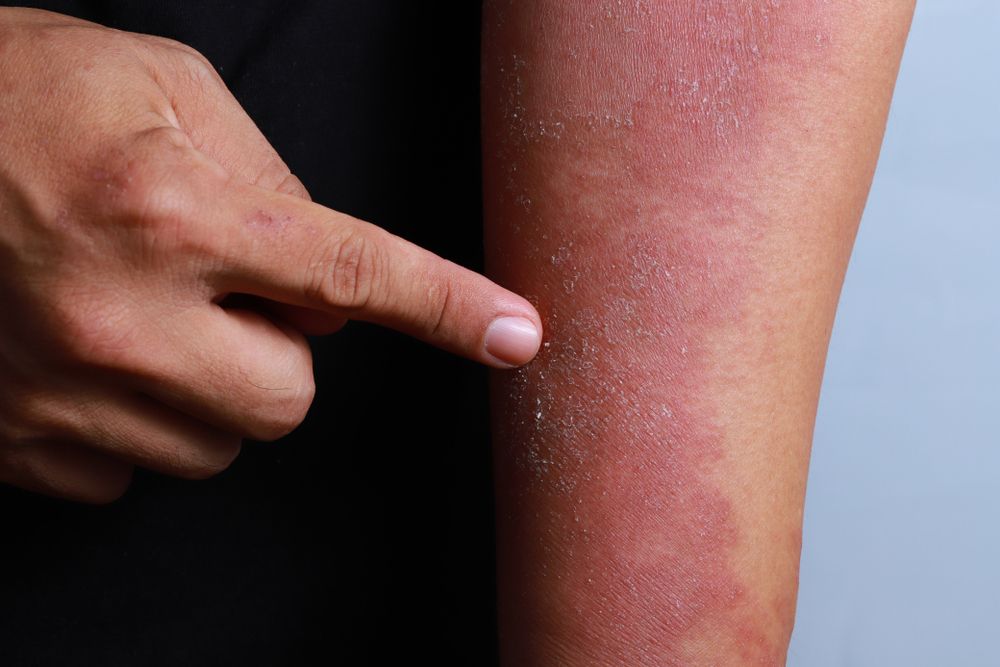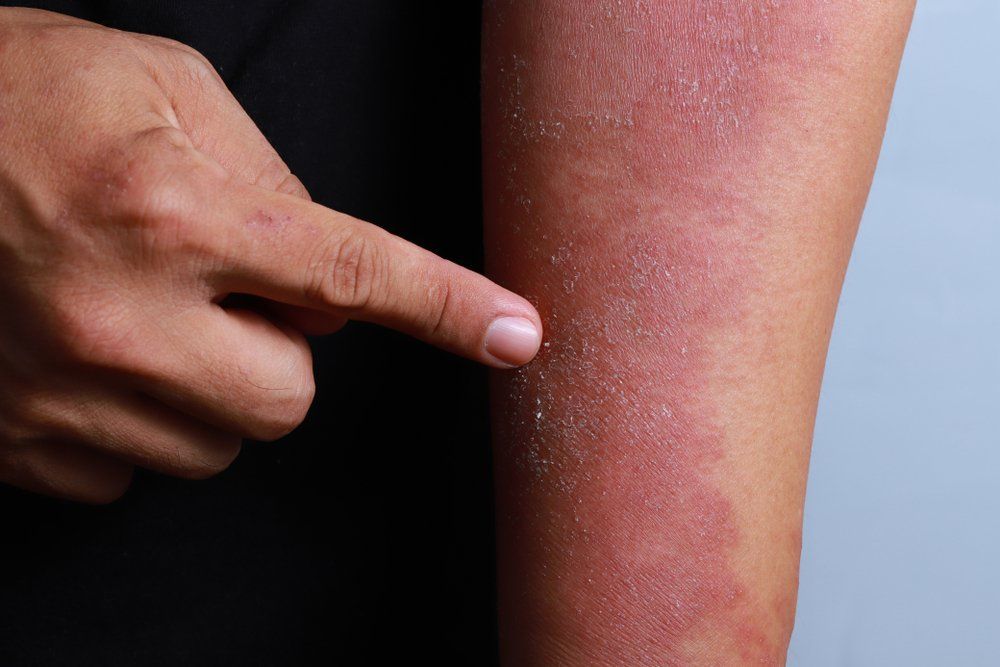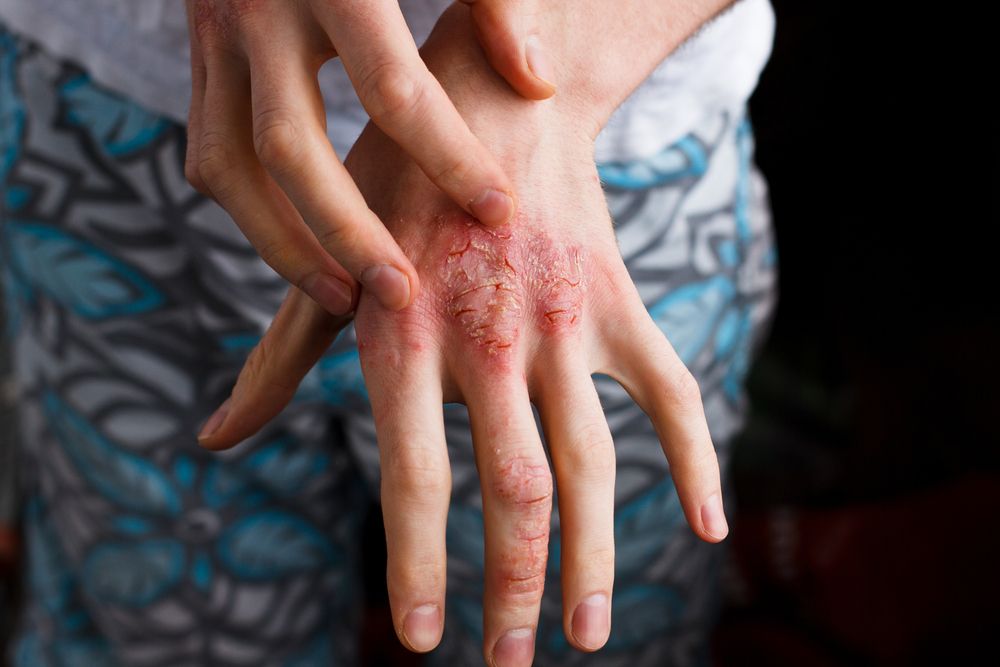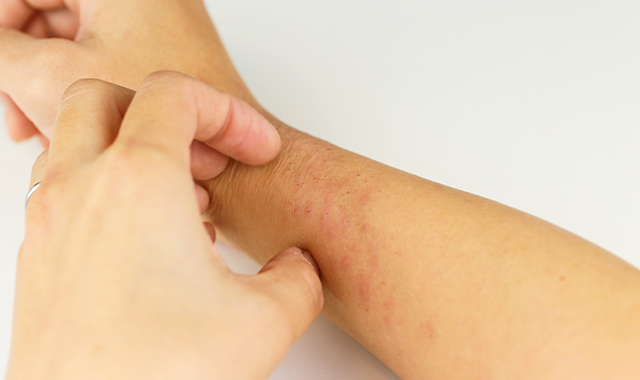- Acne
- Actinic Keratosis
- Aesthetics
- Alopecia
- Atopic Dermatitis
- Buy-and-Bill
- COVID-19
- Case-Based Roundtable
- Chronic Hand Eczema
- Chronic Spontaneous Urticaria
- Drug Watch
- Eczema
- General Dermatology
- Hidradenitis Suppurativa
- Melasma
- NP and PA
- Pediatric Dermatology
- Pigmentary Disorders
- Practice Management
- Precision Medicine and Biologics
- Prurigo Nodularis
- Psoriasis
- Psoriatic Arthritis
- Rare Disease
- Rosacea
- Skin Cancer
- Vitiligo
- Wound Care
Article
Atopic disease burden unnecessarily high
Author(s):
Physicians bypass systemic treatments in moderate to severe cases of atopic dermatitis despite its potential to control symptoms.
Physicians bypass systemic treatments in moderate to severe cases of atopic dermatitis despite its potential to control symptoms. (©TYLim/Shutterstock.com)

Compared to adult patients with mild atopic dermatitis, adult patients with moderate and severe disease are nearly twice as likely to report more severe itching and pain, greater adverse events while sleeping and a higher prevalence of anxiety and depression, shows a JAMA Dermatology study.
The study shows that the impact of moderate to severe disease runs much deeper than visual symptoms, says corresponding author Eric Simpson, M.D., of Oregon Health and Science University in Portland, Ore.
In this study, published online July 3, 1,519 adult atopic dermatitis patients from six academic medical centers completed a questionnaire that addressed pruritis, pain, sleep, anxiety, depression and health-related quality of life. The patients were categorized as having mild disease (n = 689, 64% women, mean age 46.5 years); moderate to severe disease (n = 830, 66.8% women; mean age 45.1 years).
Only 22 percent of patients with moderate to severe disease had even received systemic therapy, and only half of those patients believed they were adequately controlled.
Patients in the moderate to severe group reported more severe itching and pain, greater adverse effects on sleep, higher prevalence of anxiety and depression (50.2% vs 27.3%), and greater health-related quality-of-life impairment.
“I think in general, clinicians and dermatologists may be slightly risk adverse when it comes to jump to systemic therapy,” Dr. Simpson said. “It has only been recent that we realize that the benefits of systemic therapy are probably much greater than we realize because the burden is so great. I predict that the more systemic treatments we have available, the more patients on systemic therapy will grow over time.”
Patients whose moderate to severe disease was poorly controlled despite treatment with systemic immunomodulators or phototherapy, reported higher burdens of itch and sleeplessness than patients whose disease symptoms were controlled. “Surprisingly, about half of the patients who are even on traditional systemics did not feel that their disease was adequately controlled,” said Dr. Simpson who suggests that physicians explore in greater depth with their patients how their atopic dermatitis symptoms may affect sleep, anxiety, depression, itch and pain. “Think about how you can help that patient once they leave the office,” he said.
By relying on skin exam alone, clinicians miss a big part of their patient’s care. “Potentially, this study should encourage dermatologists to use either patient-reported outcomes in their practiceâsuch as official questioning of itch and/or quality of life scales. Or, at least ask patients about these other aspects of their life,” Dr. Simpson said.
Two limitations of the study are potential bias due to patient self-reporting and participants may have different characteristics from those patients who did not enroll.
DISCLOSURES
The study was funded by Regeneron Pharmaceuticals/Sanofi.
REFERENCE
Simpson ES, Guttman-Yassky E, Margolis DJ, et al. “Association of Inadequately Controlled Disease and Disease Severity with Patient-Reported Disease Burden in Adults with Atopic Dermatitis,” JAMA Dermatology, July 3, 2018. DOI:10.1001/jamadermatol.2018.1572
Newsletter
Like what you’re reading? Subscribe to Dermatology Times for weekly updates on therapies, innovations, and real-world practice tips.





